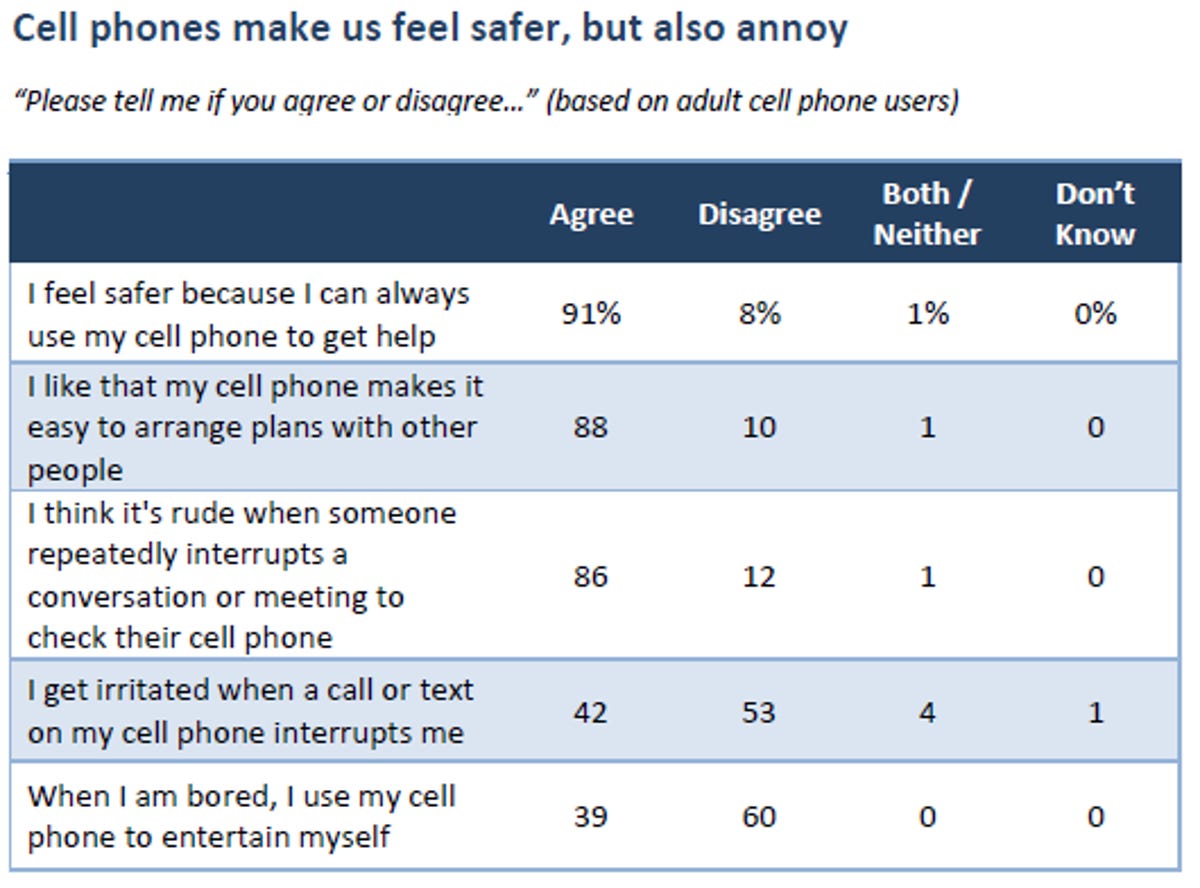Though our cell phones make us feel safer and more connected, we’re not so crazy about how they interrupt our daily lives.
A majority of the people surveyed by Pew Internet for a report released Thursday said owning a cell phone makes them feel safer because they can always use it to call for assistance. A large number (88 percent) also said their phones help them make plans with other people. In particular, the adults surveyed by Pew said they use calls and text messages to set up meetings and check in with others.
A significant number (65 percent) said they sleep with their cell phones on or right next to the bed, and those folks are even more likely to see their phones as an effective way to make plans. And 52 percent of them also enjoy their phones as a source of entertainment.
But many of those same people get annoyed and frustrated by incoming calls and text messages. Among those surveyed, 86 percent said it’s rude when other people interrupt a conversation or meeting to check their cell phones. Two out of five cell phone owners said they get irritated when a call or text interrupts them.
People who are 18 to 24 years old are more apt than those in the 25 to 29 age range to get annoyed by a call or text interrupting them, possibly because the younger crowd sends and receives a larger number of texts each day, says Pew.

Pew Internet
Another source of frustration is spam. No longer targeted just to e-mail, spam has increasingly come in the form of instant messages sent directly to cell phones–57 percent of those surveyed reported getting a spam text message.
Beyond our love/hate relationship with the cell phone, the survey found that texting is growing in popularity with adults. The adults surveyed who IM grew to 72 percent in May from 65 percent in September 2009. Those 18 to 24 years old who text said they send and receive on average around 10 messages a day. Of course, that still can’t compete with those under 18 who send and receive around 50 messages each day.
To compile its survey results, Pew commissioned Princeton Survey Research Associates to interview 2,252 adults age 18 and older between April 29 and May 30, 2010, and 800 teens age 12 to 17 between June 26 and September 24, 2009.



